BMW’s all-electric plant in Debrecen enters its final phase before full production. With modular systems, digital twin planning and just-in-sequence delivery, the site signals the future of scalable, fossil-free manufacturing.
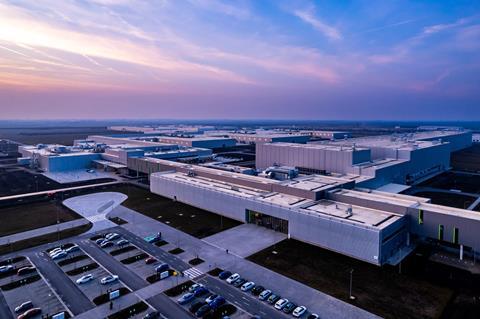
The BMW Group’s newest factory in Debrecen, Hungary, has entered a critical phase of its development, as the ramp-up of the assembly line marks a new milestone for the site. With preparations now advancing toward full series production of the all-electric BMW iX3 in late 2025, Debrecen is fast becoming a blueprint for BMW’s next generation of automotive manufacturing.
“Our highly efficient and ergonomic assembly line immediately started running without any issues,” said Hans-Peter Kemser, Managing Director of BMW Group Plant Debrecen. “We achieved this thanks to virtual planning and tests, as well as the outstanding collaboration between our new, highly motivated employees in Debrecen and our experts within the BMW Group’s global production network.”
”A record proportion of parts - up to 80% - can be delivered directly in Debrecen”
The Neue Klasse transforms assembly with modular design and leaner wiring
The assembly line integrates body-in-white vehicles with all components and systems, ultimately producing a fully assembled, drive-ready BMW. At Debrecen, however, the introduction of BMW’s Neue Klasse architecture brings significant changes to the structure of the build process.
The platform introduces significant modularisation across systems, reducing the variety of connecting elements and greatly simplifying the installation of components. The electrical architecture, in particular, has been reengineered to support zonal wiring. Unlike in previous models, the cable harness is divided into multiple parts, making it easier and more ergonomic to install. The zonal wiring harness architecture requires 600 fewer metres of wiring and weighs 30 percent less than the previous generation.
From Lydia and Leipzig into Debrecen: global production earnings and optimisations
In parallel, the simplification of connecting components reduces the number of unique parts such as plugs, screws and clips. The result is an assembly process that is not only more efficient, but also more resilient in the face of supply chain complexity. An additional gain in efficiency is achieved through a newly designed cockpit installation method, which follows a layout previously established at BMW’s Plant Lydia in China.
The innovative cockpit assembly accelerates processes at Plant Debrecen. It is one of the most compact in the BMW Group’s production network, yet still allows full flexibility and variety. As at Plant Lydia in China, cockpit pre-assembly is located right next to the main line. Once the cockpit has been pre-assembled, it is then installed directly in the vehicle just a few metres ahead.
Read more BMW stories
- BMW plants prepare for a new era with Neue Klasse production
- Will the BMW Neue Klasse be a gamechanger in e-Architecture?
- BMW drives CO2 reduction with workforce engagement
- ‘Designing for Circularity’ to lead in sustainability: BMW
Many of the technologies in Debrecen have been transferred from other BMW Group locations, with processes and layouts derived from Plant Lydia and Plant Leipzig.
Plant Lydia in China was also an inspiration for many structures and processes in the assembly. The plant opened in 2022 and was the first BMW Group site to be completely planned and simulated in the virtual world from the outset. The shop floor for the assembly line and complete conveyor system in Debrecen are set up identically. Therefore, the technology was available quickly and had already been tried and tested, simplifying the commissioning of a completely new production line.
Similarly, Plant Leipzig served as the foundation for Debrecen’s logistics model, particularly the development of its so-called finger structure.
”With the Neue Klasse, a wide range of quality checks can be performed digitally whilst still on the production line. This procedure will also be implemented at other sites after its initial use in Debrecen”
Preassembled modules and simplifying processes
These structures include the so-called finger structure, or comb structure, which the BMW Group developed specifically for Plant Leipzig, which opened in 2005. This structure allows supply parts and preassembled modules to be transported directly to the assembly lines. A record proportion of parts - up to 80% - can be delivered directly in Debrecen, as the fingers will enjoy logistics supply from both sides for the first time.
This is the highest ratio in the BMW Group’s production network. The finger structure allows subsequent extension and the integration of further assembly steps – flexibility is a characteristic of production at the BMW Group. The plant is already building test vehicles for the first model of the Neue Klasse.
The BMW Group Plant Debrecen is already producing test vehicles for the first model of the Neue Klasse: the new BMW iX3. In this manner, the new plant is gradually ramping up for series production.
How digitalisation is reshaping quality control
Furthermore, with the Neue Klasse, a wide range of quality checks can be performed digitally whilst still on the production line. This procedure will also be implemented at other sites after its initial use in Debrecen. The next point of use will be the home plant in Munich, which will produce the sedan model of the Neue Klasse as of 2026.
Underpinning all these processes is BMW’s iFACTORY manufacturing philosophy. The company used a completely virtual design process to plan the Debrecen site from the ground up.
The BMW iFACTORY and the sustainable production ecosystem
When planning the new production site in Hungary, the BMW Group used a completely virtual design process. In line with the principles of the BMW iFACTORY, the tried-and-tested standards and high-tech solutions from existing plants were referred to many times. For example, many ideas and proven structures from Plant Lydia in China and Plant Leipzig can be found in the assembly in Debrecen.
The factory is also a sustainability benchmark within BMW’s network. The plant in Debrecen will be the first automobile plant in the BMW Group to operate entirely without the use of fossil fuels during normal operation.
As the countdown to late 2025 continues, Debrecen is not just preparing to build the Neue Klasse – it is actively defining how this new generation of vehicles will be manufactured across BMW’s network.





























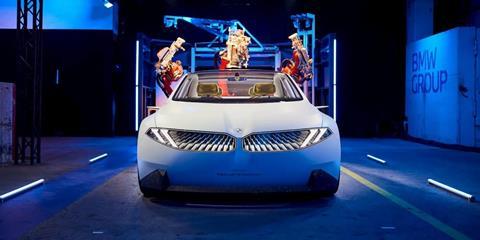

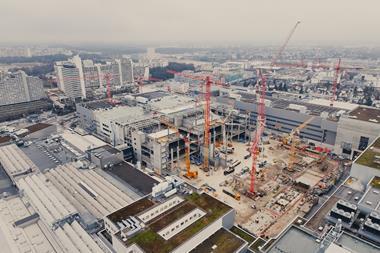
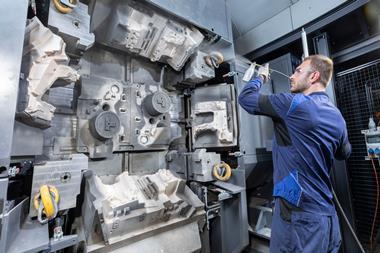
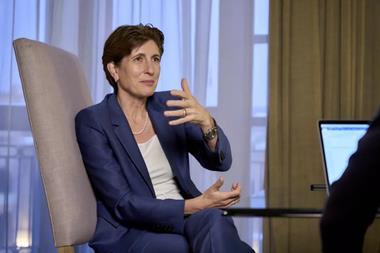

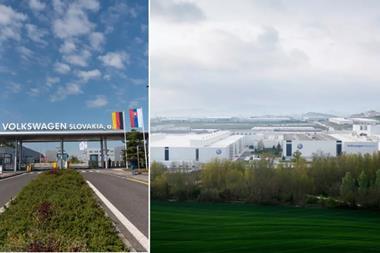



No comments yet